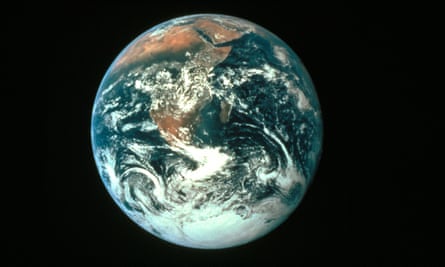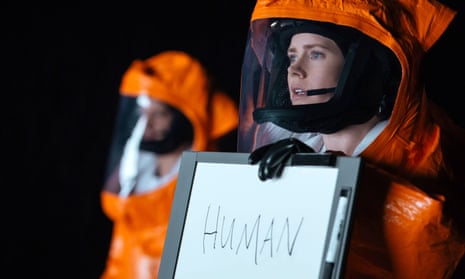In 2016, SF and fantasy went global. It wasn’t a question of success – both genres have been globally successful for many years – but of provenance. This was the year in which western audiences began to wake up to the excellence and diversity of genre voices from around the world.
Take, for instance, the Hugo, the genre’s most prestigious award. Over the last couple of years this prize was more or less hijacked by the “Sad” and “Rabid Puppies” – groups opposed to the more progressive and liberal iterations of SF. In 2016 these angry activists proved much less destructive. This year’s Hugo winners were not only great books, they were pointers for the direction in which the genre as a whole is moving. Best novel went to NK Jemisin’s The Fifth Season (Orbit), a tale of an earthquake-afflicted and wasted world that functions as a powerful fable of ecological collapse while also reconfiguring fantasy in more ethnically and sexually diverse directions. Best novella was Nnedi Okorafor’s African-flavoured space opera Binti (Tor), while best novelette was Folding Beijing by Hao Jingfang, translated by Ken Liu.
Hao is the first Chinese woman to win a Hugo, and while SF has been a big deal in China for some years, in 2016 it began properly to filter into western consciousness. Death’s End (Head of Zeus), the final volume of Liu Cixin’s Remembrance of Earth’s Past trilogy, was published in English (the first volume, The Three-Body Problem, won last year’s best novel Hugo), again translated by Ken Liu. Liu Cixin’s trilogy is SF in the grand style, a galaxy-spanning, ideas-rich narrative of invasion and war between humanity and the alien “Trisolarians”. There is an energy, a rawness, to a lot of Chinese SF, a sense of excitement in the possibilities of the genre itself. The more China becomes a high-tech global power, the more we will see its writers and artists turn to SF as the literature best fitted to exploring technological and social change.
Of course, the main barrier to a properly global SF remains the anglophone biases of culture and fandom, which give an advantage to writers who work in English. Lavie Tidhar’s Central Station (Tachyon), a sprawling hymn to the glory and mess of cultural diversity set in a future spaceport Tel Aviv, is one example: Israeli-born Tidhar lives in London and writes in English. Malaysian-born writer Zen Cho also lives in London and writes in English: her elegantly drawn Regency fantasy Sorcerer to the Crown (Pan) won this year’s British Fantasy award. But translation is on the rise, too, often drawing on crowdsourced or kickstarted funds to bring writers to new audiences. Meanwhile, in Iraq + 100: Stories from a Century After the Invasion, Comma press commissioned 10 homegrown writers to imagine what their country might look like in the year 2103, with fascinating results.

Another reason why 2016 felt fresh was that it saw the emergence of important new voices. South African author Nick Wood’s potent debut Azanian Bridges (NewCon) uses alt‑history to get under the skin of apartheid. Ada Palmer’s first novel, Too Like the Lightning (Tor), is written with real panache, mashing together 18th-century manners and 25th-century interplanetary adventure. Becky Chambers followed up the huge success of her self-published first novel with an equally good second, the clever and touching A Closed and Common Orbit (Hodder & Stoughton). And Yoon Ha Lee’s Ninefox Gambit (Solaris) recasts Korean legend in a densely rendered high-tech future universe governed by “calendars”, in effect computer programs that determine the nature of reality.
While Yoon Ha Lee’s worldbuilding is intricate, some of the year’s best books took quite simple ideas and developed them in direct and powerful ways. Christopher Priest’s The Gradual (Gollancz), set in a vast archipelago, develops a straightforward-enough science-fictional version of time zone differences into an extraordinary meditation on travel, ageing and loss, while Nina Allan’s beautifully written The Race (Titan) works four characters and two versions of Britain into a heart-wrenching story about the difficulties of human connection.
In an unusually varied year for SF and fantasy, this may be the closest we have to a unifying theme: translation as a way of talking about the obstacles to, and possibilities of, truer communication. It’s no coincidence that the alien-encounter movie Arrival turned out to be one of the best films of the year. It was based on a short story by Ted Chiang, a writer long revered in the genre, though little known outside it. Chiang’s story takes as its hero a linguistics expert and translator. Her struggles to connect are a metaphor for something far bigger – in SF and fantasy, and in the wider world.
Adam Roberts’ The Thing Itself is published by Gollancz. Save at least 30% on this year’s critics’ choices when you buy at the Guardian Bookshop. Visit bookshop.theguardian.com or call 0330 333 6846. Support the Guardian and its journalism with every book you buy this Christmas. *Free UK p&p for online orders over £10. Minimum £1.99 p&p applies to telephone orders.

Comments (…)
Sign in or create your Guardian account to join the discussion